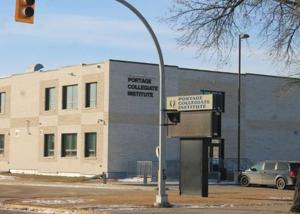Health
Brandon’s Mental Health Support Faces Challenges After 30 Years

The landscape of mental health support in Brandon, Manitoba, has evolved significantly over the past three decades. Initially, the move to close the Brandon Mental Health Centre aimed to eliminate stigma and shift care into the community. This approach was intended to provide a more supportive environment for individuals seeking help. However, recent assessments indicate a growing crisis in the mental health system, raising important questions about its current effectiveness.
In the 1990s, the then-Progressive Conservative government championed a mental health reform that promised to provide comprehensive community support. Former health minister Jim McCrae highlighted the necessity of this transition, stating, “A paradigm shift from institutional isolation and stigma to modern service delivery in the community simply made common sense for the 21st century.” The goal was clear: facilitate care that allowed individuals to live freely while still receiving necessary support.
Following the closure of the Brandon Mental Health Centre in the late 1990s, staffing was redistributed across various regions, including the establishment of new facilities such as the Centre for Adult Psychiatry at the Brandon Regional Health Centre and the Children and Adolescent Treatment Centre. Despite these initiatives, the anticipated outcomes have not been fully realized.
Concerns have arisen regarding the concentration of services in downtown Brandon, where the deterioration of community safety and well-being has become increasingly apparent. Residents and business owners alike have voiced their unease, suggesting that the consolidation of health services in this area may have exacerbated existing issues.
In a significant development, the Brandon Police Service released a summary report on public safety in September 2023. This report followed extensive consultations with residents and community partners and emphasized the urgent need for a crisis response unit. This unit aims to pair police officers with mental health professionals to effectively address incidents involving mental health crises.
Insp. Dana McCallum of the Brandon Police Service remarked, “I think it’ll be very beneficial to actually have trained professionals dealing with those mental health calls.” This initiative reflects a recognition that police officers should not be the sole responders in mental health situations, underscoring the necessity for specialized support.
Moreover, the report highlighted systemic pressures that contribute to perceptions of disorder in downtown Brandon. Law enforcement officials reported challenges such as a lack of detox beds, mental health assessment facilities, and appropriate follow-up care after discharges. One quote from the report articulated a stark reality: “The entire region funnels into Brandon and then stops downtown. We’re the end of the line for every gap.”
Proposals from the police included not only the establishment of a dedicated mental health hospital but also a decentralization of services to mitigate over-concentration. This suggests a potential return to a more distributed model of care that could better meet community needs.
Historical context reveals that the community-based system established after the BMHC’s closure did not anticipate the current demand for services amidst rising mental health challenges. Dr. Derry Decter, a local physician, has expressed concerns about the adequacy of funding for mental health support since the reforms began. He noted the tragic consequences for individuals who have been left without proper assistance.
The Westwind Counselling and Eating Disorder Recovery Centre, which emerged from the BMHC’s staff, has recently relocated to Kelowna, British Columbia, after charging upwards of $20,000 for a three-month stay at its Brandon facility. This shift exemplifies the challenges facing local mental health services and the gap in accessible support for residents.
Currently, Prairie Mountain Health is actively seeking four family physicians to join the Department of Psychiatry, highlighting ongoing staffing shortages that affect service delivery.
Brandon’s journey in mental health care has come full circle, prompting a reevaluation of how services are structured and delivered. As the community grapples with these issues, it is evident that serious questions must be addressed regarding mental health support and the effectiveness of current strategies. The time for action and reform has long since arrived.
-

 Politics4 weeks ago
Politics4 weeks agoSecwepemc First Nation Seeks Aboriginal Title Over Kamloops Area
-

 World5 months ago
World5 months agoScientists Unearth Ancient Antarctic Ice to Unlock Climate Secrets
-

 Entertainment5 months ago
Entertainment5 months agoTrump and McCormick to Announce $70 Billion Energy Investments
-

 Science5 months ago
Science5 months agoFour Astronauts Return to Earth After International Space Station Mission
-

 Lifestyle5 months ago
Lifestyle5 months agoTransLink Launches Food Truck Program to Boost Revenue in Vancouver
-

 Technology3 months ago
Technology3 months agoApple Notes Enhances Functionality with Markdown Support in macOS 26
-

 Lifestyle3 months ago
Lifestyle3 months agoManitoba’s Burger Champion Shines Again Amid Dining Innovations
-

 Top Stories2 months ago
Top Stories2 months agoUrgent Update: Fatal Crash on Highway 99 Claims Life of Pitt Meadows Man
-

 Politics4 months ago
Politics4 months agoUkrainian Tennis Star Elina Svitolina Faces Death Threats Online
-

 Sports5 months ago
Sports5 months agoSearch Underway for Missing Hunter Amid Hokkaido Bear Emergency
-

 Politics5 months ago
Politics5 months agoCarney Engages First Nations Leaders at Development Law Summit
-

 Technology5 months ago
Technology5 months agoFrosthaven Launches Early Access on July 31, 2025



















